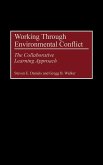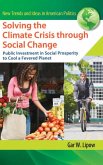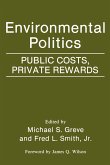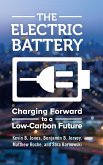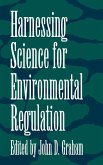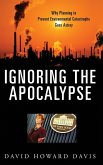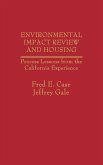Vast changes in U.S. environmental policy from the New Deal through the Reagan administration have occurred that shed light on the nature of the American regulatory state. This book focuses on the sweeping transformation of regulatory policymaking that took place around 1970. The rise of social regulation and the advent of public interest movement during the 1960s and 1970s led to a significant change in policy outcomes, as the influence of governmental actors and political activists increased at the expense of business. By homing in on two specific areas, pesticide regulation and air pollution control, this study attempts to describe and explain these changes. This book is distinguished by its explanation of the transformation to the new system, its understanding of the way the new regulatory arrangements affect policy outcomes, and, most important, its explicit consideration of recent controversies in empirical political theory. The results provide an assessment of both the strengths and the weaknesses of the new institutionalism as a theoretical approach to studying domestic public policy in the United States. The regime framework developed here is designed to emphasize the multiplicity of forces behind public policy. This volume will be of interest to students of the American policy process, environmental policy and regulation, and theories of the American state, in academia, government, and the environmental policy community.
Hinweis: Dieser Artikel kann nur an eine deutsche Lieferadresse ausgeliefert werden.
Hinweis: Dieser Artikel kann nur an eine deutsche Lieferadresse ausgeliefert werden.


